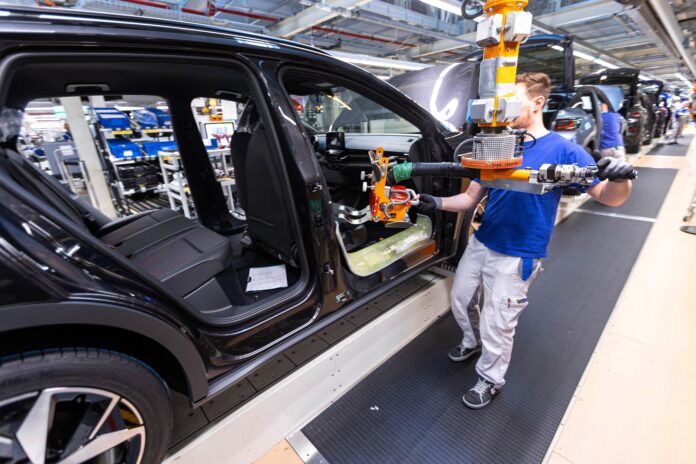The European Union is closing in on a plan to push back painful tariffs on electric cars traded with the UK, Bloomberg reports.
With just over a month until the duties kick in, member states told the EU to come up with proposals including a possible postponement of the 10% tariff, after France, the only major member state opposed to an outright delay, signaled there could be a way forward.
The bloc’s executive vice president Maros Sefcovic and EU ministers discussed the issue last week, according to people familiar with the matter, with France saying it was open to finding a way to soften the impact, including a short transition period. European carmakers like Volkswagen AG and Renault SA have said the tariffs as of January 1 could cost the sector €4.3 billion over the next three years.
Any solution to the issue will be hard-won, including on how to make changes without reopening the Brexit deal, said the people, who spoke on condition of anonymity discussing private conversations.
Under current post-Brexit arrangements, EVs moving between the UK and the EU will attract the duty if less than 45% of their value comes from the region with the policy meant to encourage development of Europe’s battery supply chain. European carmakers want to extend the planned phase-in period by three years because local cell supply isn’t ready.
Nearly every member state that intervened in last week’s meeting, including Italy, Sweden and Hungary, advocated for a one-off extension of the current rules, the people said. The UK also favors a delay until 2027.
France said it was open to a solution that would ensure European manufacturers are cushioned against the impact of tariffs and a short period of time to transition to the new regime. But Paris also underlined that the post-Brexit trade deal should not be reopened and that European production would soon be able to meet the demands of exports to the UK, according to the people.
Finding a balanced and united position that checks all the boxes won’t be easy, the people said. Any deal will have to avoid hurting European carmakers, ensure the continent’s battery sector continues to develop and not set a precedent to re-open other aspects of post-Brexit arrangements, they said.
Bloomberg previously reported that one of the options under consideration was to effectively delay the imposition of new tariffs by as many as two years.
Any solution that requires amending the EU-UK Trade and Cooperation Agreement, or TCA, would need the backing of member states followed by a decision with Britain.


